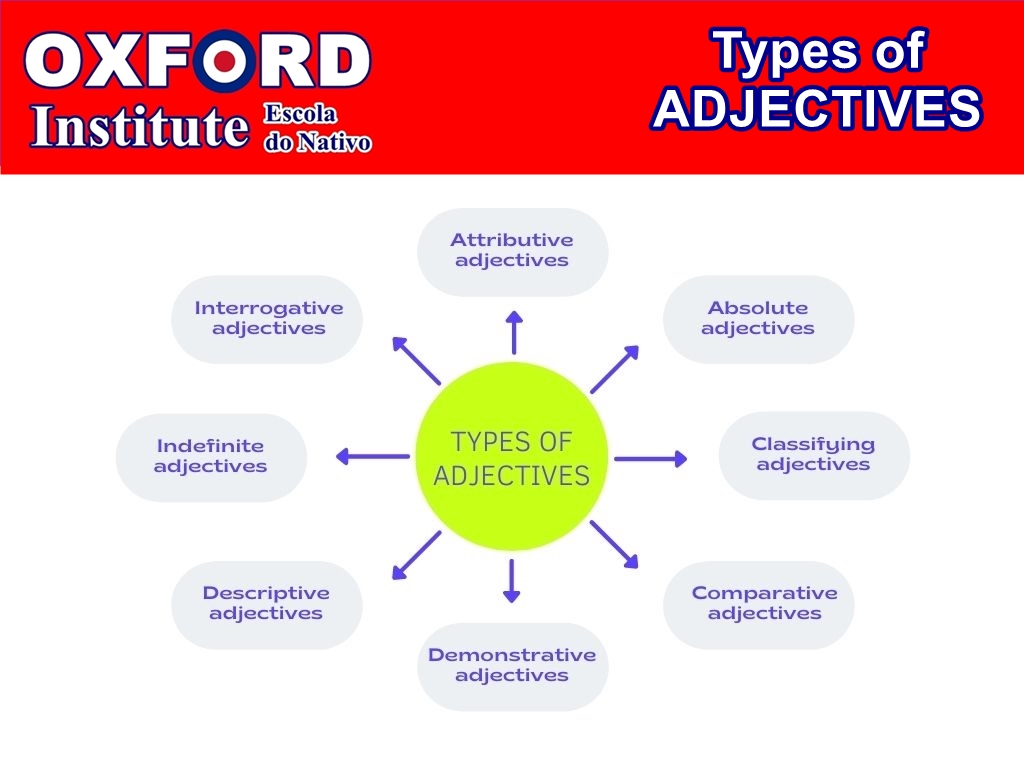
Student FREE Bookstore (CLICK HERE)
10 ADVANCED ADJECTIVES USED TO DESCRIBE PEOPLE
File Download: OXFORD INSTITUTE LIST OF ADJECTIVES
INTRODUCTION:
It might seem like a silly question to ask, but what is an adjective? An adjective is a word that describes a noun or noun phrase.
Its semantic role is to change information given by the noun. Traditionally, adjectives were considered one of the main parts of speech of the English language, although historically they were classed together with nouns.
** Semantics is the study of meaning in language.
NEW VOCABULARY: A silly question, semantic role, semantics, role,
AUDIO REVISION: Listen to the audio and read the paragraph at the same time.
WORD ONE: “Inspirational”
The dictionary defines inspiration as: “the process of being mentally stimulated to do or feel something (creative)”. Inspiration can be challenging to understand and describe because what inspires one person may not have any relevance for another.
When you are inspired, the dictionary states that: “mentally you are stimulated to do or feel something”. Above all, an inspired person often feels compelled to be different and do better than they currently are.
QUESTION:
Who inspires you? Is it someone famous or a member of your family, a colleague or friend? What is it about that person that you admire?
What attracts you to them? Which attributes of theirs would you like to adopt?
NEW VOCABULARY: Defines, mentally stimulated, challenging, states that, compelled to be different, currently, attributes, adopt
AUDIO REVISION: Listen to the audio and read the paragraph at the same time.
GRAMMAR SECTION: Adjectives

QUESTONS:
-
-
-
-
-
-
-
Research the different kinds of adjectives.
- Write a sentence using one demonstrative adjective.
- Write one sentence using one classifying adjective.
- Please research the other six yourself as homework.
-
-
-
-
-
-
____________________
*** A demonstrative adjective is an adjective used to specifically describe the position of something or someone in space or time. The most commonly used demonstrative adjectives are this, that, these, and those.
*** In English grammar, a classifying adjective is a type of attributive adjective used to divide people or things into particular groups, types or classes. Unlike qualitative adjectives, classifying adjectives don’t have comparative or superlative forms
WORD TWO: “Overambitious”
This can be a negative word. Having a strong desire for success or achievement. To be unsuccessful or likely to be unsuccessful because of needing or putting in too much effort, money or time. For example: Her plans were overambitious. We were overambitious in what we tried to do. And so we failed.
AUDIO REVISION: Listen to the audio and read the paragraph at the same time.
NEW VOCABULARY: A strong desire, too much effort, to fail
AUDIO REVISION:
Video Listening Section: Watch and listen to this beautiful video of the first successful British space tourism flight and then answer the questions below.
The questions below are not in chronological order. Identify as many adjectives as you can from the conversation.
-
-
-
-
-
Write a list of all the adjectives within this video.
-
What is the name of the Virgin Atlantic space ship?
-
At 2 minutes and 20 seconds we see a young boy. Describe the look on his face.
-
Describe the reaction of the people at 2 minutes and 40 seconds.
-
Describe the emotion you feel after watching Sir Richard Branson’s first and successful flight in space.
-
Using adjectives describe the feeling that the music gave to you while watching the video.
-
-
-
-
WORD THREE: “Conscientious”
According to American writer and editor H. L. Mencken, “Conscience is the inner voice which warns us someone may be looking.” A person who is conscientious makes sure that if others are watching, they approve of what they see. This is true for someone who is “governed by their conscience” as the oldest sense of the word is defined—as in “a conscientious objector to the war”—but it is also true for the conscientious person paying close, careful attention to the task at hand. Conscientious came to English from French, centuries after Middle English had adopted conscience from Old French; both ultimately come from Latin scire, “to know.
NEW VOCABULARY: According to, conscience is the inner voice, a conscientious objector, paying attention, Middle English,
AUDIO REVISION: Listen to the audio and read the paragraph at the same time.
SPEAKING EXERCISE ONE:
Describe a member of your family in detail using as many adjectives as you can.
WORD FOUR: “Rebellious”
If someone is rebellious, they are difficult to control and do not behave in the way that is expected: Her teachers regard her as a rebellious, trouble-making girl. If a group of people are rebellious, they oppose the ideas of the people in authority and plan to change the system, often using force:
NEW VOCABULARY: difficult to control, behave, regard her, trouble making, oppose
AUDIO REVISION: Listen to the audio and read the paragraph at the same time.
WORD FIVE: “Inquisitive”
Wanting to discover as much as you can about things, sometimes in a way that annoys people
NEW VOCABULARY: To annoy
AUDIO REVISION: Listen to the audio and read the paragraph at the same time.
WORD SIX: “Apathetic”
Showing no interest or energy and unwilling to take action, especially over something important.
NEW VOCABULARY: Showing no interest, Unwilling
AUDIO REVISION: Listen to the audio and read the paragraph at the same time.
SPEAKING EXERCISE TWO:
Describe your boss in detail using as many adjectives as you can.
WORD SEVEN: “Perceptive”
To be very good at noticing and understanding things that many people do not notice:
NEW VOCABULARY: To notice
AUDIO REVISION: Listen to the audio and read the paragraph at the same time.
WORD EIGHT: “Obstinate”
To be unreasonably determined, especially to act in a particular way and not to change at all, despite what anyone else says.
NEW VOCABULARY: Unreasonably, determined, especially, a particular way, despite.
AUDIO REVISION: Listen to the audio and read the paragraph at the same time.
WORD NINE: “Neurotic”
Behaving strangely or in an anxious (= worried and nervous) way, often because you have a mental illness.
NEW VOCABULARY: Behaving, strangely, mental, illness
AUDIO REVISION: Listen to the audio and read the paragraph at the same time.
SPEAKING EXERCISE ONE:
Describe your best friend in detail using as many adjectives as you can.
WORD TEN: “Open-minded”
Willing to consider ideas and opinions that are new or different to your own:
NEW VOCABULARY: Willing
AUDIO REVISION: Listen to the audio and read the paragraph at the same time.
WRITING EXERCISE:
Write 150 words describing your last holiday / vacation, (in English these two words have the same meaning) . Use at least four of the new adjectives from above in your text.
____________________________
https://oxfordinstitutebook.club/free-downloads/








